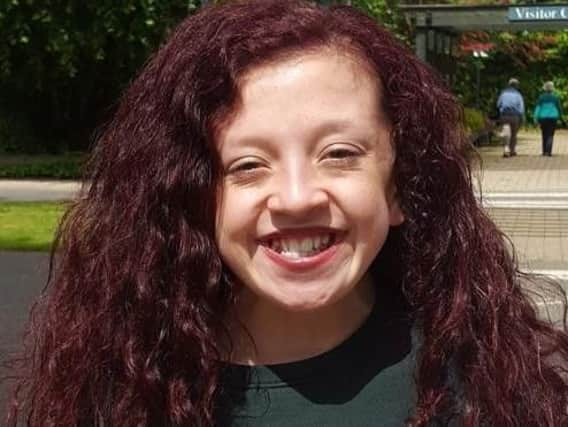'No-one was in overall control' when Scottish teenager Amy Allan died at world-famous hospital


Giving a narrative verdict at the inquest into Amy Allan, the coroner ruled out neglect but said there was a lack of awareness, no plan for her post operative management and no single clinician taking responsibility.
And he ruled that had she not had the operation she would still be alive.
Advertisement
Hide AdAdvertisement
Hide AdAmy Allan, died 23 days after undergoing the crucial surgery, to correct a curvature of her spine, in September 2018.
The Scots teen was diagnosed with Noonan's Syndrome, a rare genetic disorder which affected her heart and lungs.
She was born with holes in her heart and needed surgery to close them when she was nine weeks old.
She also suffered from Hypertrophic Cardiomyopathy, an unhealthy thickening of her heart muscle, as well as pulmonary hypertension - high blood pressure in her lungs.
She was taken off a ventilator at 11.20pm and was not put on ECMO, a life support technique where blood is oxygenated outside the body, until 8am the following morning.
She had the operation at GOSH partly because they provided an ECMO team, but noone told her she was there.
Giving his verdict, the coroner Coroner Edwin Buckett said: "I find that that evidence taken with all other evidence in this case and the test for neglect is not established.
"Looking at the evidence as a whole I can't make a firm conclusion that extubation or the delay in ECMO caused or materially contributed to her death.
Advertisement
Hide AdAdvertisement
Hide Ad"I do however find that there was no prior plan set out by GOSH for the management of Amy post operation.
"She was in any view a rare, complex, and high-risk case. ECMO should have been in the forefront of those involved in her post surgery care.
"I find that there was a lack of awareness with no single clinician taking responsibility for her care.
"The overall impression is that no-one was in overall control.
"The operation on September 4 set in train a sequence of events which caused her death. She was not able to withstand the effects of surgery and its aftermath upon her.
"Amy would not have died had the operation not taken place."
The inspirational teenager, from Dalry, Scotland, was honoured with a first aid award in her name - handed out by St Andrew's First Aid.
A four day inquest, at St Pancras Coroner's Court in central London, has this week heard how Amy was admitted the world famous children's hospital on September 4 2018 for the life changing op but rapidly deteriorated later that day when doctors took her off a ventilator.
Advertisement
Hide AdAdvertisement
Hide AdDuring the investigation evidence about the standard of care was heard to determine if doctors had acted wrongly or neglectfully.
An independent expert witness called by the family, Dr Steven Playfor, told the court that the decision made by intensive care doctors to unhook her from the device.
He said: "She suffered very severe and prompt deterioration in her status. I can say that with a high degree of certainty.
"It certainly materially contributed [to her death.] "It's not an error which I would count as neglectful. It's more in the realm of miscalculation, more of a dangerous error."
The court also heard evidence that, despite being referred to GOSH because the hospital had ECMO - specialists providing the treatment did not even know she was there.
Doctors involved in the process had to be called in the early hours of the morning after Amy's condition declined - meaning she waited several hours for it.
Earlier in proceedings the family's counsel, Edward Ramsay asked the specialist in charge of ECMO, Dr Rahit Saxena about the possible delay.
He said: "Given all the evidence about how difficult it is to assemble the [ECMO] team at 4am then why hadn't you been alerted that this might need to happen. It stands to reason that doing this in the middle of the night was the worst time to do it.
Advertisement
Hide AdAdvertisement
Hide AdDr Saxena said: "Yes, we have an expectation that if someone has been listed for ECMO support I should know about it. No-one informed me."
Her cause of death, put down as multiple organ failure, was not said to be caused by the actions of doctors.